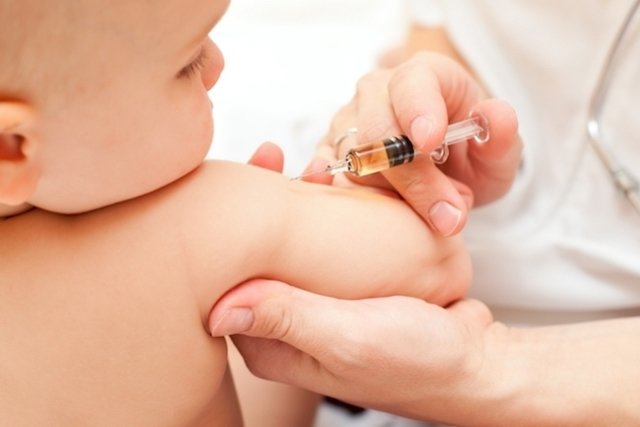Vaccines are one of the most important ways to protect health, as they allow the body to be trained to know how to act in the face of serious infections that can put life at risk, such as polio, measles or pneumonia.
For this reason, vaccines must be implemented right from birth, while still in the maternity ward, to ensure that the baby is well protected in the first few days, and must be maintained throughout life, in accordance with the vaccination schedule, to guarantee protection. against several vaccine-preventable diseases.
The vaccines are safe, being developed in certified laboratories that carry out regular studies to attest to the safety and quality of the product and control possible adverse events post-vaccination.

The most important reasons to have an updated vaccination record are:
1. Be protected against several vaccine-preventable diseases
Keeping your vaccination record up to date helps protect against as many diseases as possible for which there is already a vaccine.
Many of these diseases, which can lead to hospitalization and even put lives at risk, such as hepatitis B, tuberculosis, polio, measles, pneumonia, among others. The protection provided by vaccination can last until adulthood.
It is important to get vaccinated even in situations where there are no more cases of a certain vaccine-preventable disease in the area where you live. This is because international travelers can reintroduce, into the country or locality, diseases that were no longer being identified.
2. Encouraging vaccination is to protect family and friends
In addition to protecting the health of the vaccinated person, it is important that family and friends are encouraged to seek health services to update their vaccination status.
The more people are vaccinated against a given disease, the fewer people are infected and, therefore, transmission of the infection almost does not occur. Therefore, in addition to helping to protect each person against serious diseases, vaccines also protect those around them.
3. Contribute to the reduction and elimination of diseases
When a large proportion of people in a municipality are vaccinated against a certain disease, the number of cases tends to decrease, making it possible to control, eliminate and eradicate that disease.
We can highlight as an example of a disease that was eradicated and eliminated, respectively, smallpox and polio.

4. Reduce complications and severity in certain comorbidities
Vaccination against influenza, for example, contributes to reducing complications and severity in certain comorbidities, such as heart disease, high blood pressure, diabetes, obesity, among others that affect the respiratory system. Vaccination against influenza is an important annual action for the quality of life of priority groups. Find out more about the flu vaccine.
5. Reduce antibiotic resistance
Vaccination plays a fundamental role in combating microbial resistance by reducing cases of diseases, such as meningitis and pneumonia, and their sequelae. This action allows you to avoid infections, hospitalizations and contributes to reducing the long-term use of antibiotics.
6. Cost-benefit of vaccination
The benefits of vaccines far outweigh the possible risks, making them one of the most cost-effective medical products for the people who receive them. Scientific studies indicate that post-vaccination adverse events are infrequent, with the vast majority of them being non-serious and self-limited.
Is it safe to vaccinate during COVID-19?
Vaccination is important at all times in life and, therefore, should not be interrupted during times of crisis such as the COVID-19 pandemic. To ensure safety, all health rules are being complied with to protect those who go to SUS health centers to be vaccinated.
Also clarify the main doubts about the vaccine against COVID-19.

Sign up for our newsletter and stay up to date with exclusive news
that can transform your routine!
Warning: Undefined array key "title" in /home/storelat/public_html/wp-content/plugins/link-whisper-premium/templates/frontend/related-posts.php on line 12
Warning: Undefined array key "title_tag" in /home/storelat/public_html/wp-content/plugins/link-whisper-premium/templates/frontend/related-posts.php on line 13



